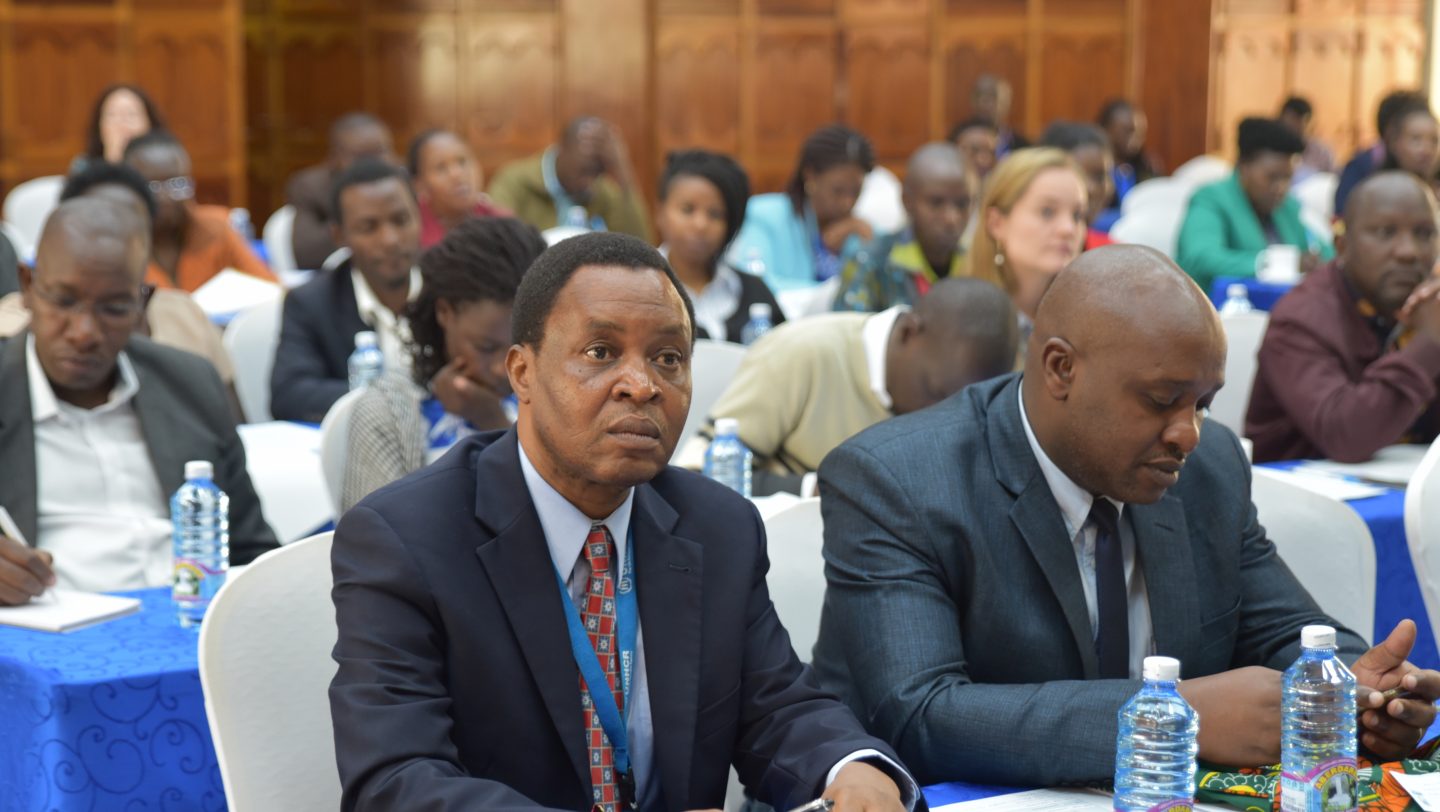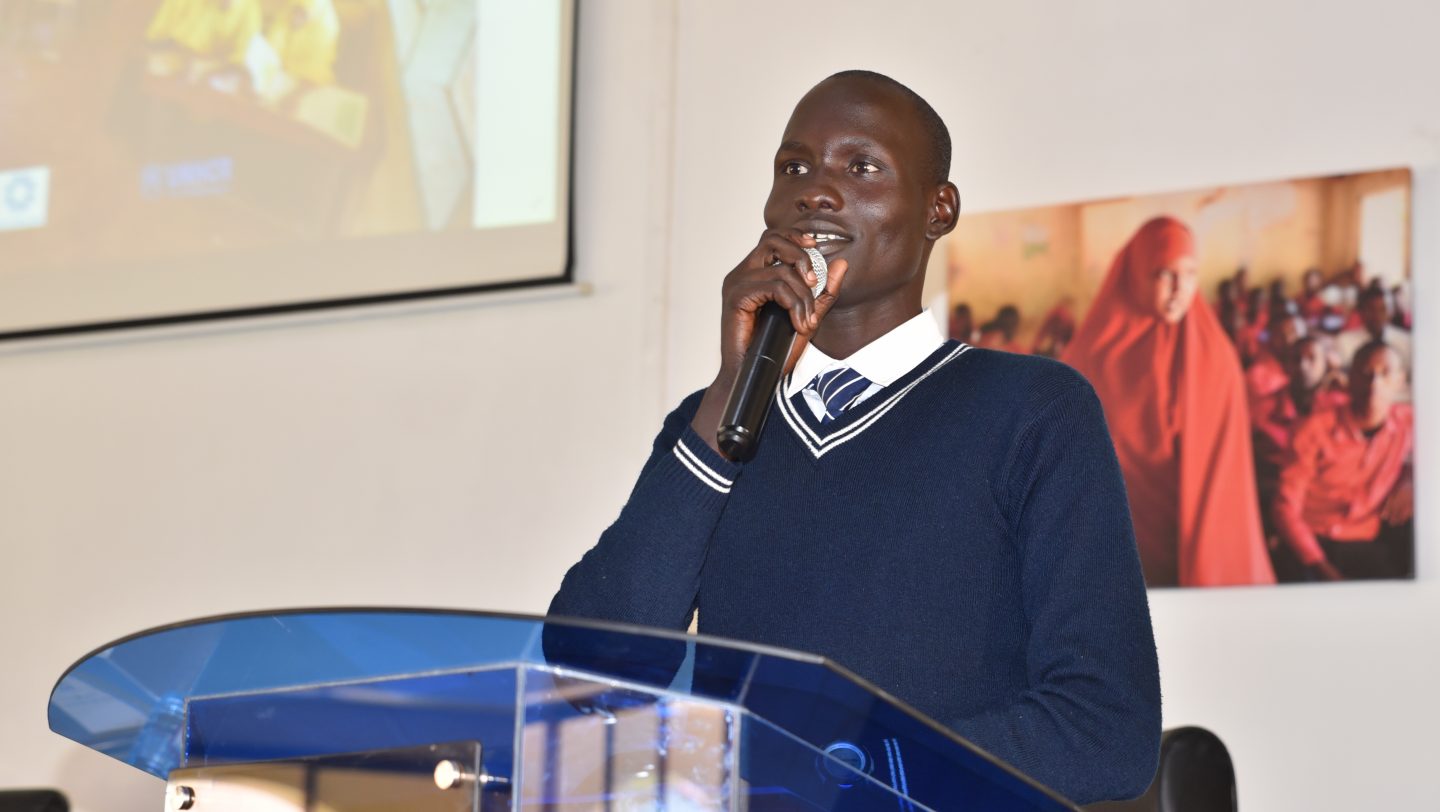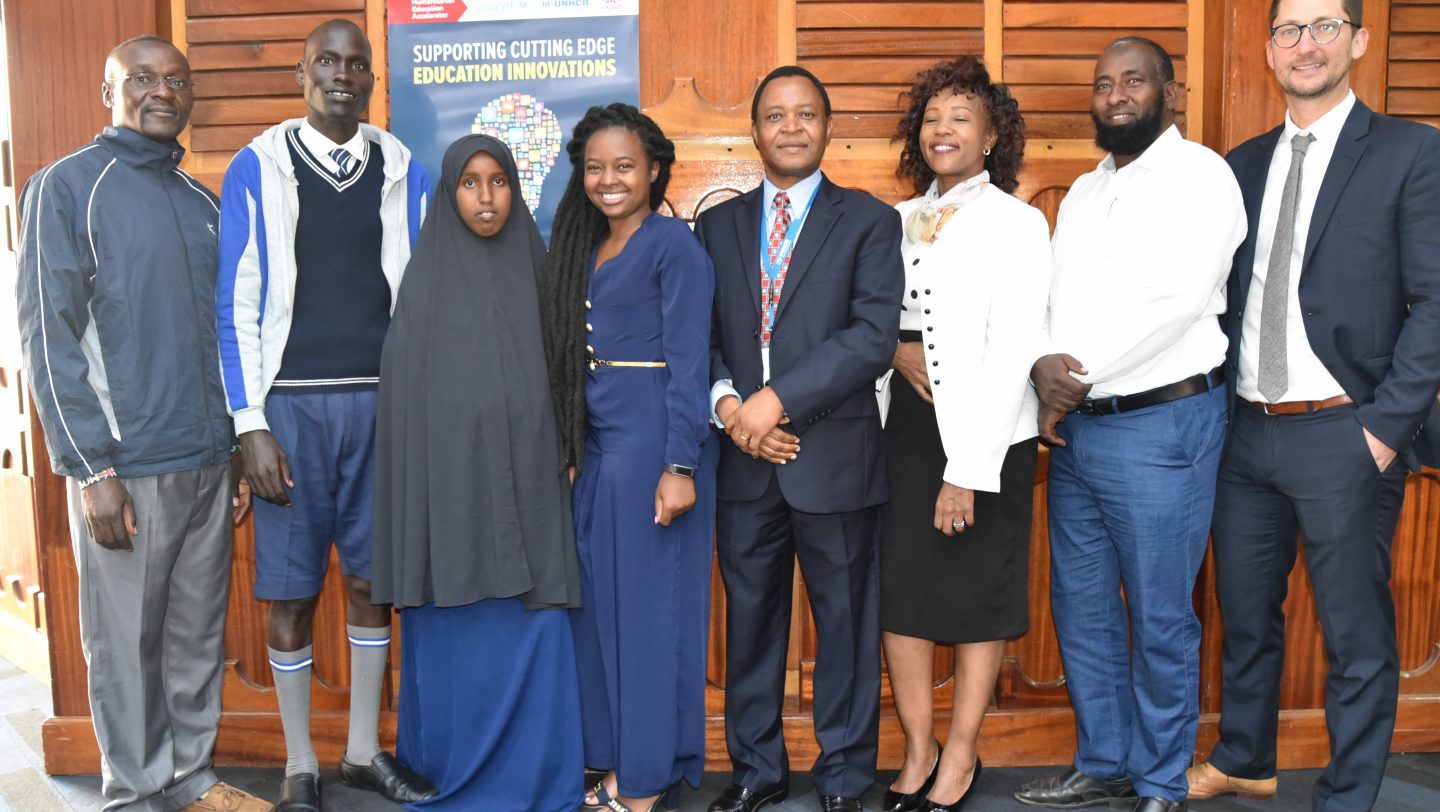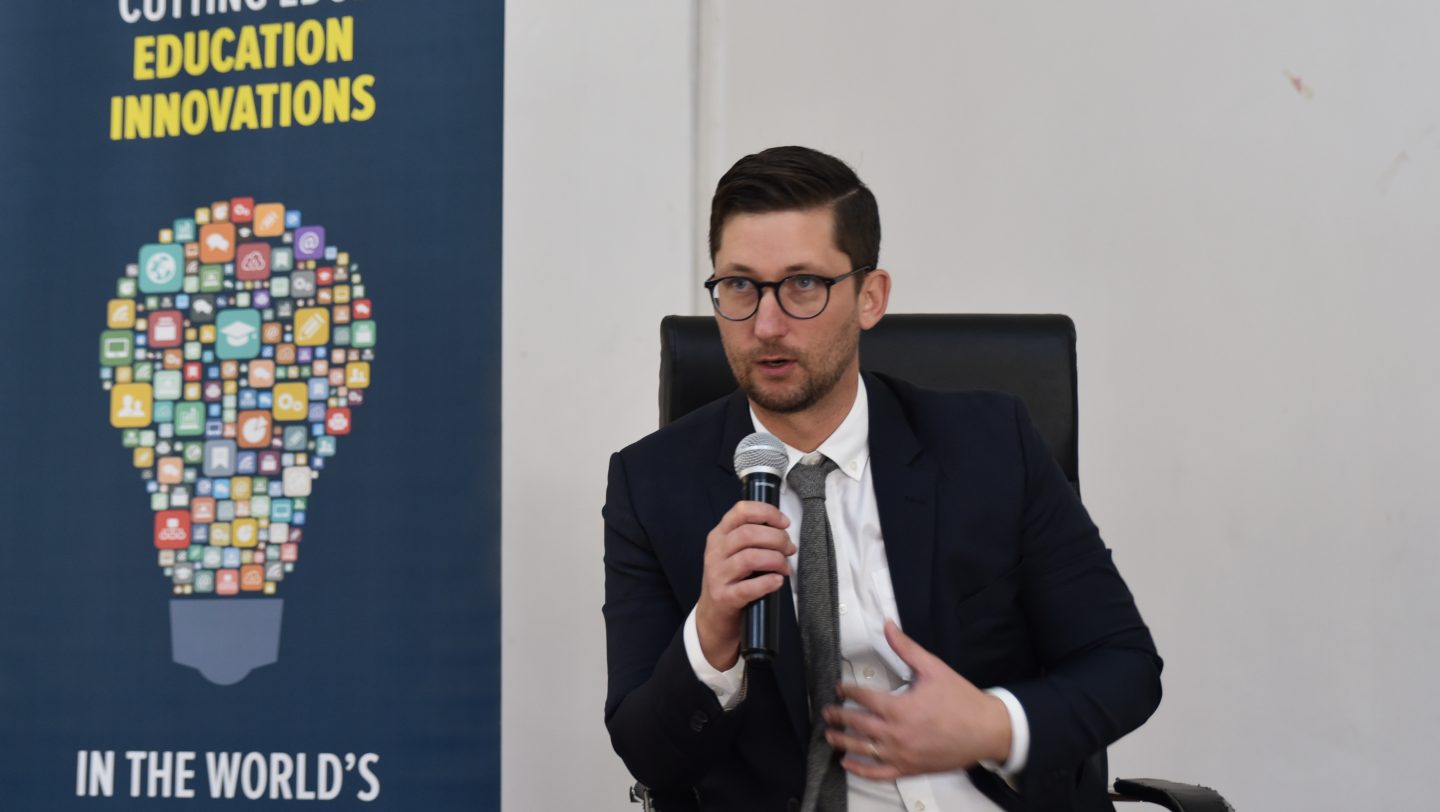UNHCR Inches Closer to Achieving Inclusion of Refugees
“Kenya has made great progress towards the inclusion of refugees in education – Kenya is a trailblazer globally.”
Maryan Mohamed, a secondary student at Waberi school in Dadaab; Gatluak Mut, South Sudanese primary school student in a host community school in Kakuma and Ernestine Bahati, a Bachelor of Nursing student at Moi University in Kenya © UNHCR/Caroline Opile
UNHCR in collaboration with World University Service of Canada (WUSC) held an interactive event, supported by the Humanitarian Education Accelerator (HEA), in Nairobi on 14 May 2019. The forum brought together Government of Kenya’ Ministry of Education officials, refugees, teachers and education partners to celebrate innovation in education in camp-settings promoting inclusive and equitable education for refugees and host community children. This comes on the heels of the pioneering efforts of the Ministry of Education to ensure the inclusion of refugee learners into national level policy and planning.
We need to fast track partnership to ensure the inclusion of refugees learners in the national system
Speaking at the forum, the acting Director of Policy and Partnerships in the Ministry of Education, Dr. Silvester Mulambe said, “We recognize the benefits of hosting refugees. We need to fast track partnership to ensure the inclusion of refugees learners in the national system.”

Acting Director of Policy and Partnerships in the Ministry of Education, Dr. Silvester Mulambe said, “We recognize the benefits of hosting refugees © UNHCR/Caroline Opile
Maryan Mohamed, a form one student at Waberi Secondary school in Dadaab camp, was among the top two percent of Kenya Certificate of Primary Education (KCPE) candidates nationally. She spoke at the event highlighting how the support from Kenya Equity in Education Project (KEEP) helped her achieve her goals:
“KEEP has helped girls like me to improve in languages, retention and performance in schools. I am grateful for the program.”
KEEP is a specific intervention aimed at increasing the participation and completion rates of girls in school. The project, a recipient of HEA funding, and an initiative of WUSC, has assisted many girls to improve their grades in primary education, and transition to secondary school and university.
WUSC East African Director, Danny Cutherell said, “KEEP seeks to empower more girls to access tertiary education and achieve gender parity among refugee learners.” Danny urged for education stakeholders to build capacities of women and girls and in the process create employment opportunities for youth.
Among the participants was Sub-County Director of Education, Mr. Idriss Shurie. He noted that refugee and host community learners, and especially girls, face comparable challenges in accessing and completing education. He urged the Ministry of Education to work closely with development partners to ensure the right of education for all children in Kenya is achieved.
Refugees are my friends, and the host community children have fully embraced them in school as our friends from the camp
An articulate Moses Nyongesa, the Senior Teacher at Kakuma Arid Zone Primary School, was also in full support of inclusion of refugees in the national systems. He noted that, “Education is a basic human right. By supporting refugees to learn, one day they will return home and rebuild their countries.” Nyongesa also emphasized that the enrolment of refugee learners has been a positive experience for the school: “Refugees are my friends, and the host community children have fully embraced them in school as our friends from the camp.”
Both Nyongesa and Shurie urged the Ministry of Education and development partners to ensure that refugees are able to access the opportunities that they have worked so hard for. Shurie said, “Give refugees the opportunity to access national schools when they have exceptional performance, and help them realize the right to education.”
Ernestine Bahati, a Bachelor of Nursing student at Moi University originally from Rwanda, was one of the participants at the event. that was held at Kenya Institute of Curriculum Development (KICD). Dressed in a blue jumpsuit and matching shoes, 25 year old Bahati was a voice for the 83% of refugees that do not have access for tertiary education.
While making her contribution at the panel discussion, Bahati said, “Refugees are global citizens. If we are to achieve inclusion in education, they should not be lost in the paperwork, procedures and bureaucracies that make refugees miss opportunities for education.”
Finally, Gatluak Mut, a refugee from South Sudan, described his experience studying in a public primary school in Kakuma town. He explained that Kenyan learners encouraged him not to give up on education and has with time assimilated well to the education system. Aged 20 and the current Head Boy, Gatluak hopes to complete primary school next year at Kakuma Arid Zone. With a chuckle, Gatluak says, “Fellow learners and teachers in the school have motivated me to learn Swahili, I hope to become a Swahili teacher when I go back to South Sudan.”
Dr. Darius Ogutu, Director of University Education and Research at the Ministry of Education, congratulated Kenya for the “great progress towards the inclusion of refugees – Kenya is a trailblazer globally”. But he also urged UNHCR and other education stakeholders to remain engaged to ensure the achievement of equity in education.
UNHCR Representative, Regional Service Centre, Bonwell Kantande, affirmed, “We are committed in supporting the Government of Kenya to achieve inclusion of refuge children in the national education system.”










